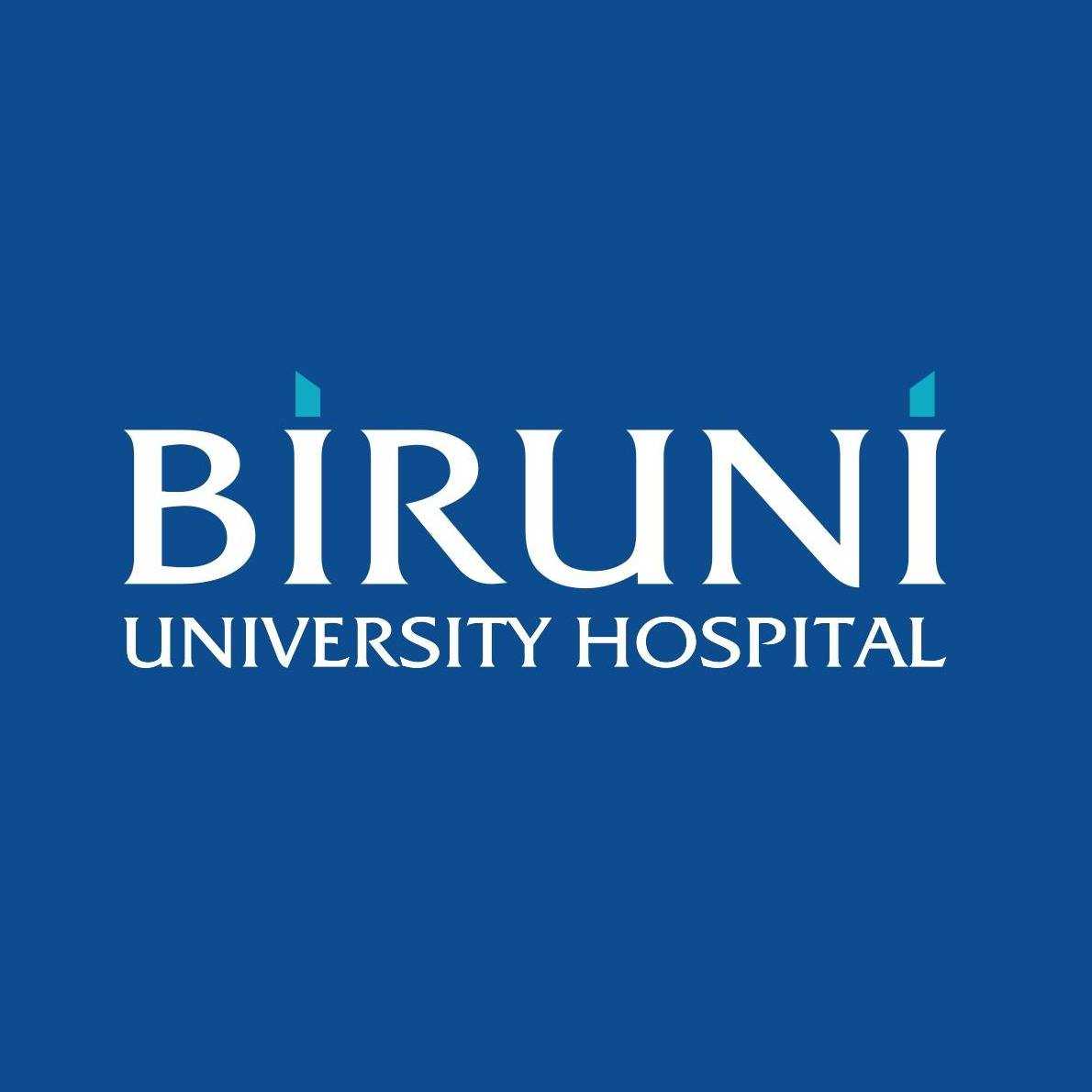Complete Guide to Determining Candidate for Gastroplasty in Turkey
.jpg)
If you've been considering weight loss surgery, or gastroplasty, you might be wondering if it's the right step for you, especially with Turkey emerging as a leading destination for such procedures. It's a significant decision, and understanding who makes a good candidate is the first crucial step.
Many individuals facing the challenges of severe obesity often feel overwhelmed, having tried numerous diets and exercise programs with limited long-term success. Gastroplasty offers a powerful tool for weight management, but it's not a solution for everyone.
Turkey has gained immense popularity for medical tourism, particularly for bariatric surgeries like gastroplasty, due to its combination of high-quality medical facilities, experienced surgeons, and competitive pricing. This accessibility has opened doors for many international patients seeking effective and lasting weight loss solutions.
This guide will help you understand the essential criteria, health considerations, and lifestyle commitments required to be a good candidate for gastroplasty in Turkey, ensuring you are well-informed to make the best choice for your health journey.
What is Gastroplasty and How Does it Work for Weight Loss?
Gastroplasty refers to a range of surgical procedures designed to help individuals with severe obesity lose weight. These operations typically work by reducing the size of the stomach or by rerouting the small intestine to limit how much food you can eat and how many calories your body can absorb.
The goal is to induce significant and sustainable weight loss, thereby improving or resolving obesity-related health conditions. The most common types of gastroplasty include:
- Gastric Sleeve (Sleeve Gastrectomy): This procedure involves removing about 80% of the stomach, creating a smaller, banana-shaped pouch. This limits food intake and also reduces the production of ghrelin, the "hunger hormone," leading to decreased appetite.
- Gastric Bypass (Roux-en-Y Gastric Bypass): This surgery creates a small stomach pouch and then bypasses a section of the small intestine. It restricts food intake and reduces calorie absorption, also altering gut hormones to promote fullness and reduce hunger.
Both procedures require a fundamental shift in dietary habits and lifestyle post-surgery to achieve and maintain weight loss.
What are the BMI Requirements for Gastroplasty in Turkey?
Body Mass Index (BMI) is a crucial factor in determining eligibility for gastroplasty. It's a measure that uses your height and weight to work out if your weight is healthy.
Generally, the standard guidelines for bariatric surgery, including gastroplasty, are followed by clinics in Turkey. The specific BMI criteria are:
- A BMI of 40 kg/m² or higher (classified as severe or morbid obesity).
- A BMI of 35 kg/m² to 39.9 kg/m² (classified as obesity) accompanied by at least one significant obesity-related health problem (co-morbidity).
It's important to note that while these are general guidelines, a comprehensive medical evaluation by a surgeon and their team will confirm your suitability based on your individual health profile.
Some clinics might consider patients with slightly lower BMIs (e.g., 30-34.9) if they have very severe and difficult-to-control co-morbidities, but this is less common and requires extensive justification.
Which Co-existing Health Conditions Qualify a Candidate for Gastroplasty?
When considering gastroplasty, especially for those with a BMI between 35 and 39.9, the presence of co-existing health conditions (co-morbidities) plays a significant role.
These are health problems directly caused or worsened by obesity, and successful weight loss can often improve or resolve them. Key co-morbidities that make someone a strong candidate for gastroplasty include:
- Type 2 Diabetes: Often dramatically improved or even resolved after bariatric surgery.
- High Blood Pressure (Hypertension): Can significantly decrease or normalize, reducing the need for medication.
- Obstructive Sleep Apnea: Many patients experience resolution or significant improvement, often discontinuing CPAP therapy.
- High Cholesterol or Dyslipidemia: Improves lipid profiles, lowering the risk of heart disease.
- Non-Alcoholic Fatty Liver Disease (NAFLD): Can improve with weight loss.
- Osteoarthritis/Joint Pain: Reduced weight alleviates stress on joints, reducing pain and improving mobility.
- Gastroesophageal Reflux Disease (GERD): Can be significantly improved, though some procedures like gastric sleeve might initially worsen it for a period.
These conditions not only justify the need for surgery but also highlight the potential health benefits beyond just weight loss.
Are There Age Restrictions for Gastroplasty in Turkey?
Age is another factor that medical teams consider when evaluating candidates for gastroplasty. While there isn't a strict cut-off that applies to everyone, general guidelines help ensure the safety and effectiveness of the procedure. Most clinics prefer candidates to be within the age range of 18 to 65 years.
- For younger patients (under 18): Bariatric surgery is typically reserved for adolescents with severe obesity and significant co-morbidities who have reached skeletal maturity and whose weight loss attempts have failed. This decision involves a multidisciplinary team and careful consideration of long-term development.
- For older patients (over 65): While age itself is not an absolute contraindication, older patients undergo more rigorous pre-operative evaluations to assess their overall health, cardiovascular fitness, and ability to withstand surgery and recovery. Their potential for long-term health benefits versus surgical risks is carefully weighed.
The focus is always on the individual's overall health and ability to recover, rather than just their chronological age.
Who is Generally Not Considered a Good Candidate for Gastroplasty?
Just as there are criteria for who is a good candidate, there are also factors that might exclude someone from undergoing gastroplasty. These exclusions are in place to ensure patient safety and to maximize the chances of successful, long-term outcomes. You might not be a suitable candidate if you have:
- Uncontrolled Psychiatric Conditions: Conditions like severe depression, bipolar disorder, or psychosis that are not well-managed can hinder a patient's ability to follow post-operative instructions and adapt to lifestyle changes.
- Active Substance Abuse: Including alcohol or illicit drugs, as this can impair judgment and adherence to the strict post-surgery regimen, also posing anesthetic risks.
- Severe, Unstable Medical Conditions: Such as advanced heart failure, severe lung disease, or uncontrolled autoimmune disorders, which would make surgery too risky.
- Lack of Commitment to Lifestyle Changes: Gastroplasty is a tool, not a cure. Patients who are unwilling or unable to make permanent changes to their diet, exercise, and overall lifestyle will not achieve lasting results.
- Certain Gastrointestinal Conditions: Such as inflammatory bowel disease, which may be complicated by some bariatric procedures.
- Pregnancy or Planning Pregnancy Soon: It's generally advised to wait at least 12-18 months after surgery before becoming pregnant to ensure stable nutrition for both mother and baby.
A thorough psychological and medical evaluation is always part of the pre-surgical assessment process to identify any contraindications.
What Lifestyle Changes Must a Gastroplasty Candidate Commit To?
Gastroplasty is not a magic bullet; it's a powerful tool that requires a strong commitment to fundamental lifestyle changes for long-term success. The surgery helps by restricting food intake and potentially altering metabolism, but it is the patient's dedication to a new way of living that truly drives results. Key commitments include:
- Dietary Modifications: This is perhaps the most significant change. Patients must adhere to a strict post-operative diet progression (liquids, purees, soft foods, then regular foods in small portions). This involves mindful eating, avoiding sugary drinks, high-fat foods, and prioritizing protein intake. Lifelong vitamin and mineral supplementation is also necessary to prevent deficiencies.
- Regular Physical Activity: Integrating exercise into daily life is crucial for maximizing weight loss, improving overall health, and maintaining muscle mass.
- Behavioral and Psychological Support: Many patients benefit from counseling or support groups to address emotional eating habits, body image issues, and adapting to their new lifestyle.
- Follow-up Appointments: Regular check-ups with the surgical team, dietitian, and other specialists are vital for monitoring progress, addressing complications, and ensuring nutritional adequacy.
These changes are not temporary; they are a permanent shift towards healthier habits that enable the surgery to be effective in the long run.
Why Choose Turkey for Gastroplasty and Bariatric Surgery?
Turkey has firmly established itself as a global hub for medical tourism, particularly for weight loss surgery. This reputation is built on several compelling factors that attract patients from around the world. Reasons to consider Turkey for your gastroplasty include:
- Cost-Effectiveness: The cost of gastroplasty in Turkey is often significantly lower than in Western European countries, the UK, or North America, without compromising on quality. This affordability makes life-changing surgery accessible to a wider range of individuals.
- High-Quality Healthcare: Many Turkish hospitals boast international accreditations (like JCI - Joint Commission International), indicating adherence to rigorous international standards of patient care and safety. They are equipped with state-of-the-art technology and modern facilities.
- Experienced Surgeons: Turkey has a growing number of highly skilled and experienced bariatric surgeons who perform a high volume of gastroplasty procedures, contributing to excellent outcomes.
- Comprehensive Packages: Medical tourism providers in Turkey often offer all-inclusive packages that cover surgery, hospital stay, pre- and post-operative care, transfers, accommodation, and sometimes even translator services, simplifying the process for international patients.
- Cultural Experience: Patients can combine their medical journey with a unique travel experience, enjoying Turkey's rich history, culture, and hospitality during their recovery.
These advantages combine to make Turkey a very attractive destination for those seeking gastroplasty.
What is the Process for International Patients Seeking Gastroplasty in Turkey?
For international patients, navigating medical treatment in another country might seem daunting, but Turkey's robust medical tourism infrastructure makes the process relatively smooth. Here’s a typical step-by-step process:
- Initial Inquiry & Consultation: Patients usually start by contacting a medical tourism agency or a direct clinic in Turkey. They will provide their medical history, current weight, height, and any co-morbidities. An online consultation with a surgeon will then take place to discuss suitability and treatment options.
- Treatment Plan & Quotation: Based on the consultation, a personalized treatment plan and a detailed cost quotation will be provided. This often includes surgery fees, hospital stay, medications, and sometimes accommodation and transfers.
- Travel and Accommodation Arrangements: Once the patient decides to proceed, travel dates are set. Many agencies assist with booking flights, airport transfers, and hotel stays, ensuring a comfortable arrival and stay.
- Pre-Operative Assessments: Upon arrival in Turkey, patients undergo comprehensive medical checks, including blood tests, ECG, chest X-rays, and endoscopic evaluation, to confirm their fitness for surgery.
- The Surgery: The gastroplasty procedure is performed by an experienced bariatric surgeon.
- Post-Operative Recovery: Patients typically stay in the hospital for 2-4 days under medical supervision. The medical team will provide detailed instructions for post-discharge care, diet, and activity.
- Return Home & Follow-up: After a safe recovery period (usually around 7-10 days in total for the trip), patients return home with a comprehensive aftercare plan. Remote follow-ups with the Turkish medical team or coordination with local healthcare providers are common.
This structured approach helps ensure a seamless experience for patients.
What are the Potential Costs of Gastroplasty in Turkey Compared to Other Countries?
One of the primary drivers for medical tourism to Turkey for gastroplasty is the significant cost advantage. Patients can often receive high-quality care at a fraction of the price they would pay in their home countries. Let's look at a general comparison:
| Country | Estimated Gastroplasty Cost (USD) |
|---|---|
| Turkey | $3,500 - $7,000 |
| United States | $15,000 - $30,000+ |
| United Kingdom | $10,000 - $20,000+ |
| Western Europe (e.g., Germany) | $12,000 - $22,000+ |
These figures are estimates and can vary based on the specific type of gastroplasty (e.g., gastric sleeve vs. gastric bypass), the clinic's reputation, the surgeon's experience, the length of hospital stay, and what is included in the package (e.g., pre-op tests, post-op medications, accommodation).
The significant savings in Turkey make it an attractive option for many patients who might otherwise struggle to afford the surgery.
What Support Systems Are Available for Medical Tourists Undergoing Gastroplasty in Turkey?
The medical tourism industry in Turkey is well-developed, offering extensive support systems to ensure international patients have a comfortable and stress-free experience during their gastroplasty journey.
These support mechanisms are crucial for patients traveling far from home for medical treatment. Key support systems include:
- Patient Coordinators/Medical Tourism Agencies: These dedicated professionals act as a single point of contact, guiding patients through every step. They help with initial inquiries, scheduling consultations, coordinating with the medical team, arranging travel logistics, and answering all non-medical questions.
- Language Support: Most clinics catering to international patients offer multilingual staff or provide professional translators to ensure clear communication between patients and medical professionals.
- Airport Transfers and Local Transportation: Many packages include complimentary pick-up and drop-off services at the airport, as well as transportation between the hotel and clinic/hospital for appointments and surgery.
- Accommodation Assistance: Agencies and clinics often have partnerships with nearby hotels, offering discounted rates or including accommodation as part of an all-inclusive package, ensuring a comfortable stay during recovery.
- Pre- and Post-Operative Care Coordination: Support extends beyond the surgery itself, covering assistance with pre-operative tests, explaining discharge instructions, and facilitating remote follow-up consultations.
- Dietitian and Nutritional Support: Access to dietitians is often provided to help patients understand and adhere to the strict post-operative dietary requirements, which is vital for long-term success.
These robust support systems are designed to make the patient's medical journey in Turkey as smooth and worry-free as possible. If you are considering gastroplasty or other healthcare services, PlacidWay can connect you with trusted international providers and guide you through your medical tourism options.




.png)



.png)
.png)
.png)
.png)
.png)






Share this listing